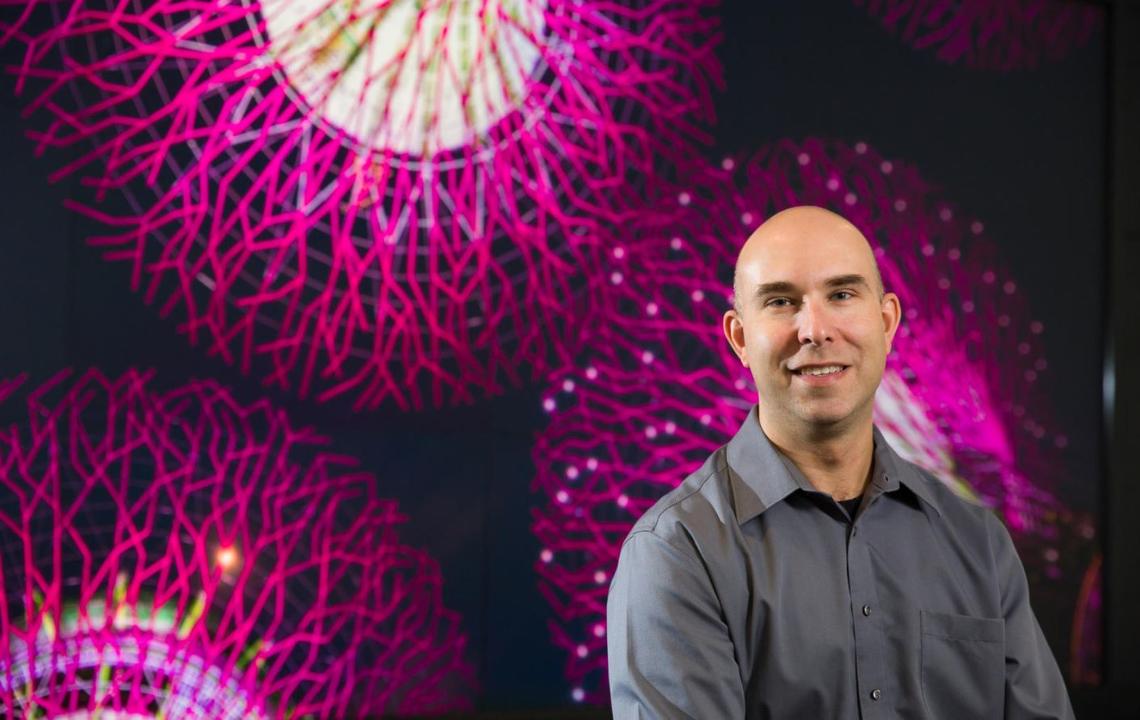Sept. 13, 2018
Sociology researcher explores how parents and educators respond to online risks facing youth

Michael Adorjan is an associate professor in the Department of Sociology.
Riley Brandt, University of Calgary
Nearly one in five youth in Canada have been cyberbullied or cyberstalked. It’s a real concern amongst parents and teenagers. The good news is that educators and parents have done a good job educating adolescents in this area, and teens are getting the message about the harms of cyberbullying. Adults and teens alike also need to grapple with other harmful issues that stem from using social media and smartphones.
“Teens are using apps and there is harm in apps collecting personal information. It’s something youths often don’t think about, and we need to educate them,” says sociologist Dr. Michael Adorjan, PhD, an associate professor in the University of Calgary's Faculty of Arts.
“Youth are also consuming news through social media, and we may ask what are the sources of the news? We need to teach young people to think critically and judge if the news is coming from a legitimate source,” he says.
After wrapping up a two-year study looking at what teens think about cyber-risk, social media and smartphones (along with Dr. Rose Ricciardelli, PhD, Memorial University), the duo is now assessing the attitudes and strategies of parents and educators in dealing with the cyber-risk problem. The project is moving forward with funding the University of Calgary received from a grant by the Social Science and Humanities Research Council (SSHRC) that was announced this spring.
Gap between teens and adults
Adorjan and Ricciardelli’s previous study also inquired into teens’ attitudes and experiences regarding parental attempts to monitor their use of technology. Teens in the first study did not think it was ideal, but understood why parents might want to have their social media passwords, or to track their location through privacy apps.
However, teens argued that they would distrust parents who were not transparent about the fact that ‘spyware’ apps were being used, regardless of the motivation to keep them safe and secure. The researchers are hoping to use this knowledge to find out other ways parents are trying to keep their kids safe online.
“Our first study gave us a sense of what youth’s opinions are about online technologies. They understood that schools and parents want to keep them safe online,” says Adorjan. “Now we want to know what parents’ and educators’ key concerns are, and what they are doing to keep youth safe online. We really want to know what they are thinking and doing.”
Advice for talking to teens about online safety
Adorjan himself is a father of two, and knows that most parents are looking for practical advice on how to keep their teens safe online. He says the most important thing is ongoing communication. “You can’t just have ‘the talk’ with your kids about online safety, or expect them to change their behaviour based on a school presentation. It needs to be ongoing conversation.”
Adorjan and Ricciardelli’s current research project seeks to explore, through one-on-one interviews, how parents and educators are experiencing and responding to the online risks facing youth. The study is currently open to interested participants, and recruitment information can be found through the University of Calgary research participation portal (please check eligibility criteria).
Interested in this topic? Learn more:
- Register for the webinar, Online Privacy in the Technocreep Age
- Download the ebook: Technology, Children and Learning: a Handbook for Parents and Teachers
